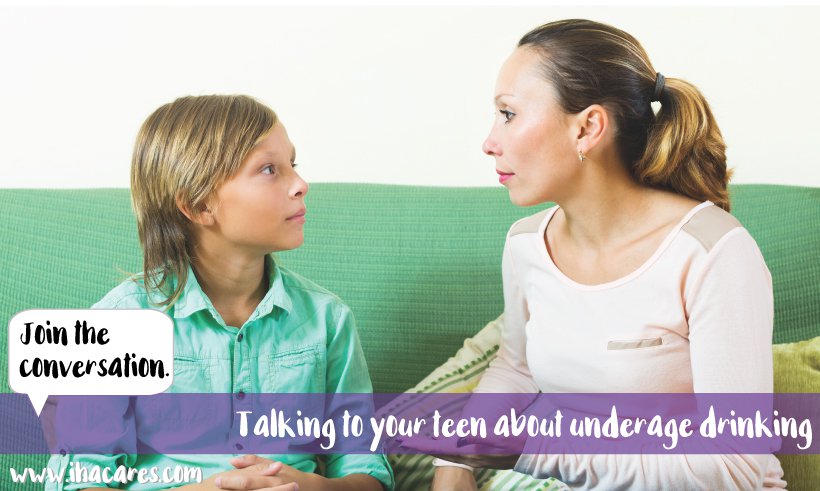
By the time they reach 8th grade, nearly 50% of all adolescents have had at least one alcoholic drink with over 20% report having been drunk. In addition to being illegal, underage drinking poses high risks. While your child is young, there are significant changes in the body, including rapid hormonal changes and the formation of new networks in the brain. Young adults are extremely vulnerable to alcohol-related brain damage. The immediate and long-term risks associated with underage drinking continue to show the need for prevention and treatment programs.
The 2013 Youth Risk Behavior Survey (link) of more than 13,000 high school students nationwide found that in the past 30 days:
- 35% drank at least one drink containing alcohol
- 21% drank five or more drinks containing alcohol
- 6% drank 10 or more drinks containing alcohol in a row
- 10% drove after drinking alcohol
- 22% rode with a driver who have been drinking alcohol
As a parent, you should feel comfortable talking to your children about underage drinking, the risks and the consequences. Often, teens do not consider consequences when making choices like to drink underage, because they do not believe they could get in an accident, or drink so much they pass out. However, alcohol related crashes are greater for drivers aged 16-20 than drivers 21 and older.
Peer pressure plays a huge role in underage drinking, as well as how alcohol is portrayed in the media. Your relationship with your children, how you discipline them, how you communicate with them and your involvement in their life are all huge influences in their choice to drink underage – or not. Communicate with your children, be involved in their lives. Encourage their growing independence, but set appropriate limits. Make it easy for them to share information about their lives, and share information about yours. Perhaps you engaged in risky behavior as a teen that you would like to make sure they do not repeat. You could be open about your teenage years and experiences. But do not glamourize any underage drinking you may have done, and be sure to tell them about the great experiences you had without drinking.
Help your children practice ways to say no to their friends: “No thank you, I’m fine,” or “I’d rather be sober,” are great places to start. Set clear rules about alcohol use and enforce the rules you set.
You need to be a positive role model for your children as well. If you drink, drink responsibly. That means not too much or too often. Do not drive when you have been drinking. Get help if you think you have a problem. And do not give alcohol to your children.
If you have any questions about how to start the conversation with your children, ask their pediatrician. They may have suggestions or resources that will help you along the way.
